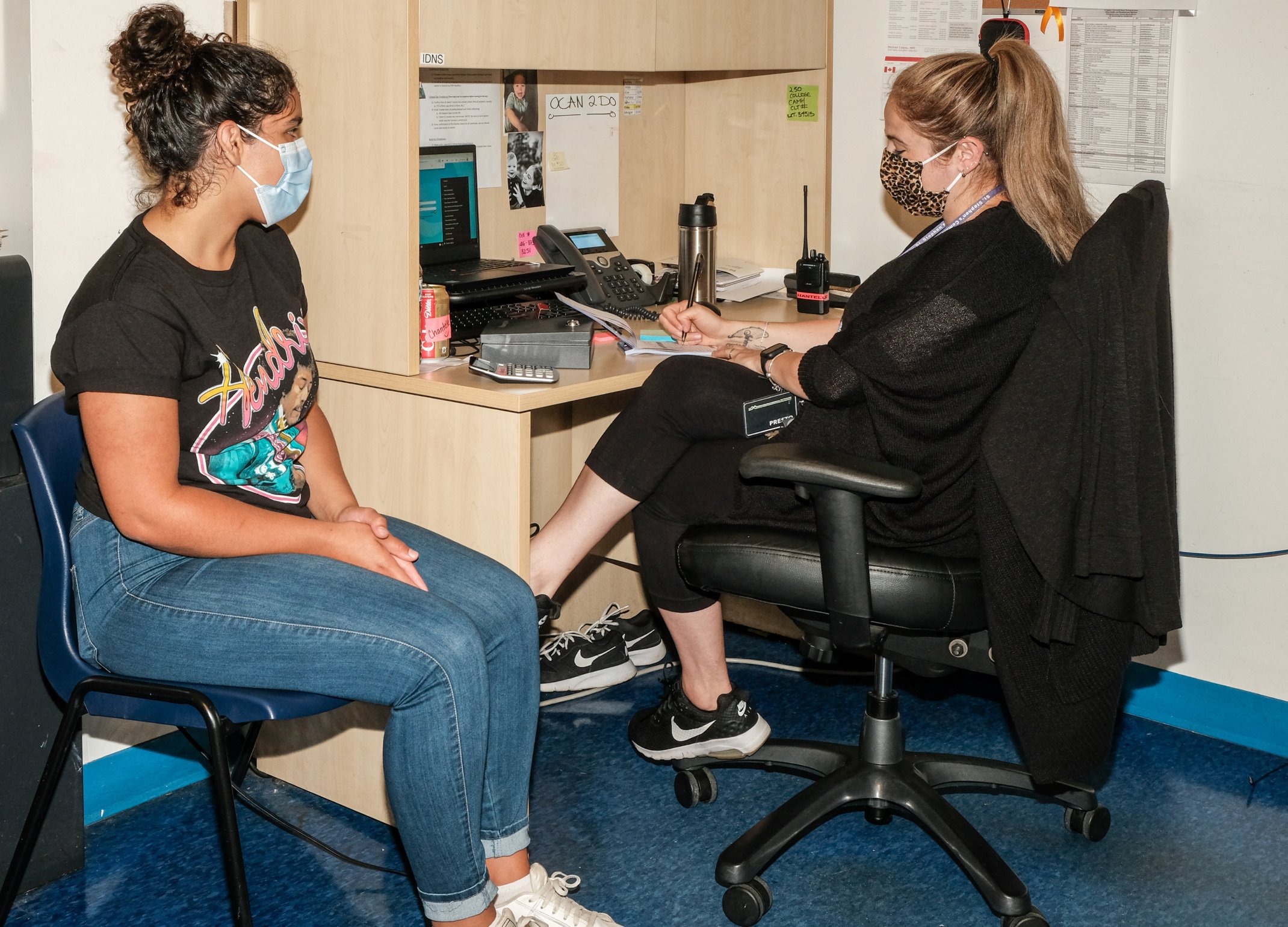Urban Health & Homelessness Services
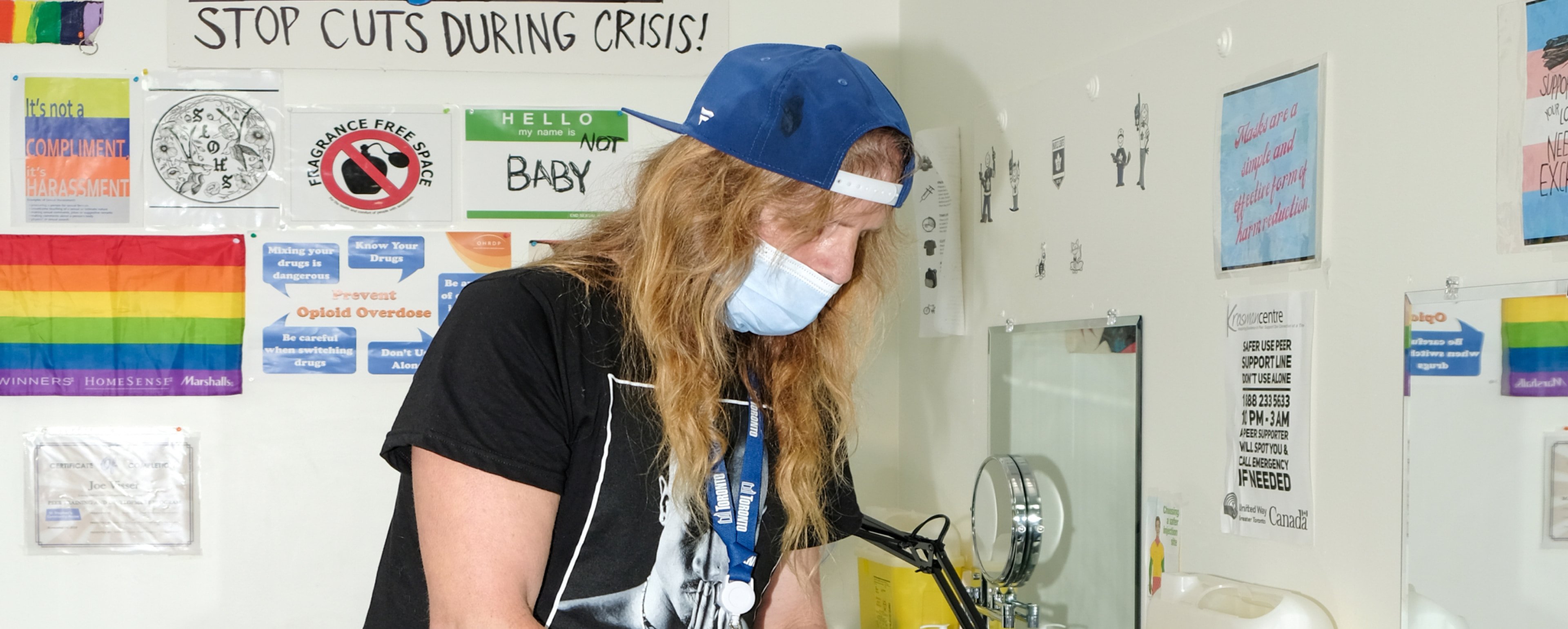
Kensington Market Overdose Prevention Site
A collision course with death
Rob veered away from harmful substance use and toward a life of helping others at the Kensington Market Overdose Prevention Site
Toronto was already in the midst of an opioid crisis. COVID-19 made it worse.
Overdose deaths are up a staggering 79% since the start of the pandemic. And one out of every six people who die are homeless, making locations like the Kensington Market Overdose Prevention Site (KMOPS) more essential than ever.
At its core, KMOPS saves lives by preventing overdoses. But the value to people who use substances goes far beyond that. By making people feel comfortable and safe, they are more open to other services that improve their health: harm reduction, primary healthcare, housing and employment assistance, and mental health counselling. Better health goes hand-in-hand with increased confidence and self-worth. Rob is proof of that.
“I was on a collision course with death. Not going to lie, I got a second chance because I overdosed. That made me want to work at a safe injection site and tell the world that a piece of fentanyl the size of a grain of sugar can kill you. And that’s what I’m doing today as a peer worker at KMOPS. I feel that if I can help just one person stay alive, or not get HIV, I’ve done my job.
"I could talk all day about the things that are better in my life now. The boost to my self-esteem for helping others is the most wonderful thing and I’m truly living my dream working here. I love what I do!”
0 overdose deaths at our overdose prevention site since it opened in 2019
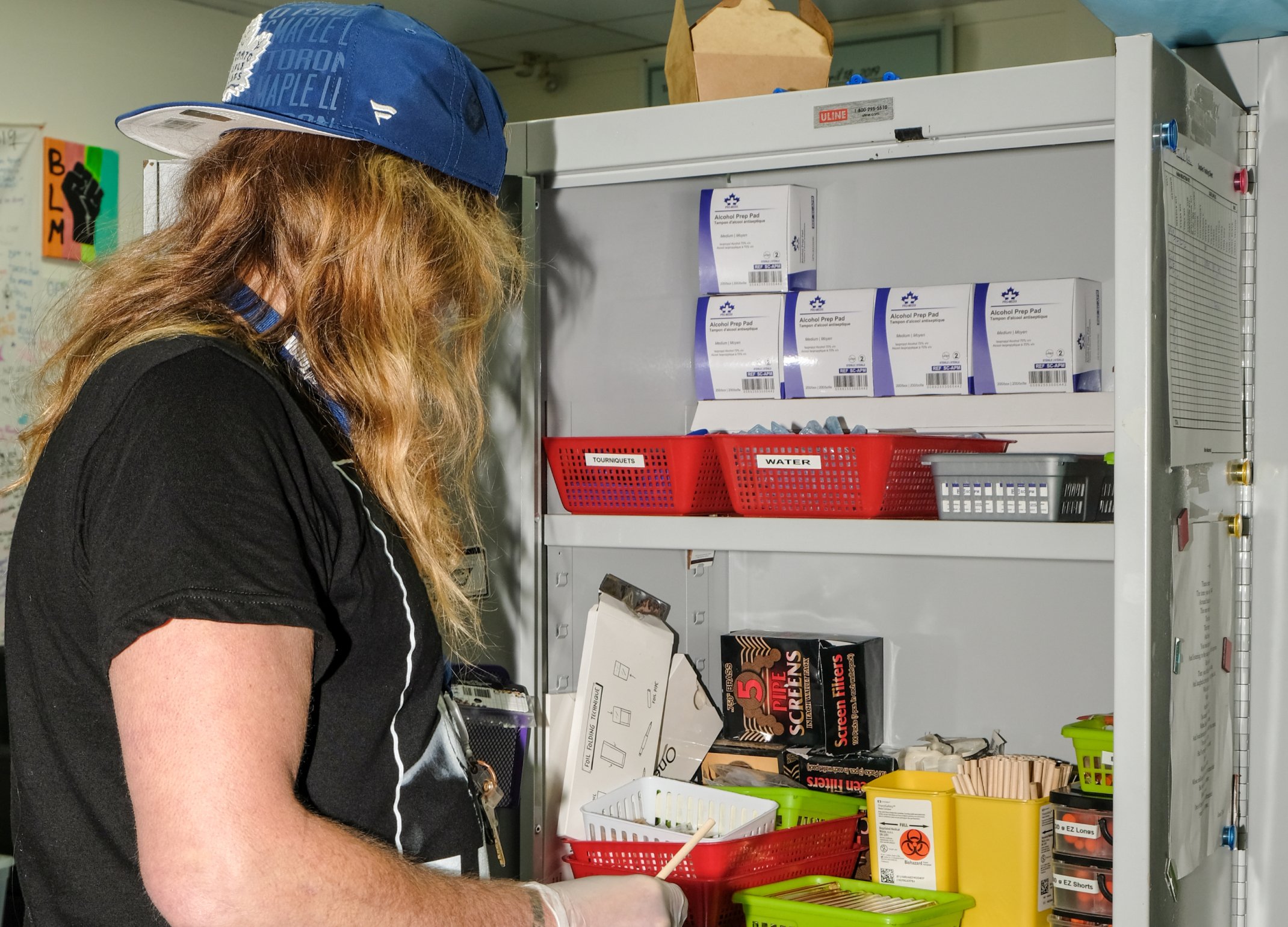
Peers in the ER
Peer health
Peer workers like Yara improve the health of emergency room patients…and themselves
“My mental health was deteriorating. I had been arrested a few days before the first COVID-19 lockdown and I was isolated at home, using substances more frequently. What changed for me was the job I got at one of the COVID recovery hotels. I worked there during the summer, then staff asked if I’d be interested in working in the Toronto Western Hospital emergency department because they knew I wanted to become a nurse. I accepted right away.”
Peer workers have become an essential cog in the Toronto Western Hospital emergency room. They build a rapport with patients through shared lived experiences of homelessness, substance use and physical or mental health issues. Their natural empathy helps validate patients’ concerns and makes it easier for hospital staff to provide effective treatment. More than that, peer workers advocate for patients with hospital staff, social workers, community members and partner organizations to ensure wraparound support is available.
“This job has humbled me and I take pride in the work. It has given me a full-time stable job. The routine helps me the most with my mental health and substance use. Since I started, I’ve learned to cope with my emotions without substances or harmful behaviours. Working here allows peers to share our stories and give hope to vulnerable people that need it. We help people see that there’s a way out of this dangerous cycle and we’re proof.
Peer workers helped nearly 700 patients in the Toronto Western Hospital emergency room between November 2020 and May 2021
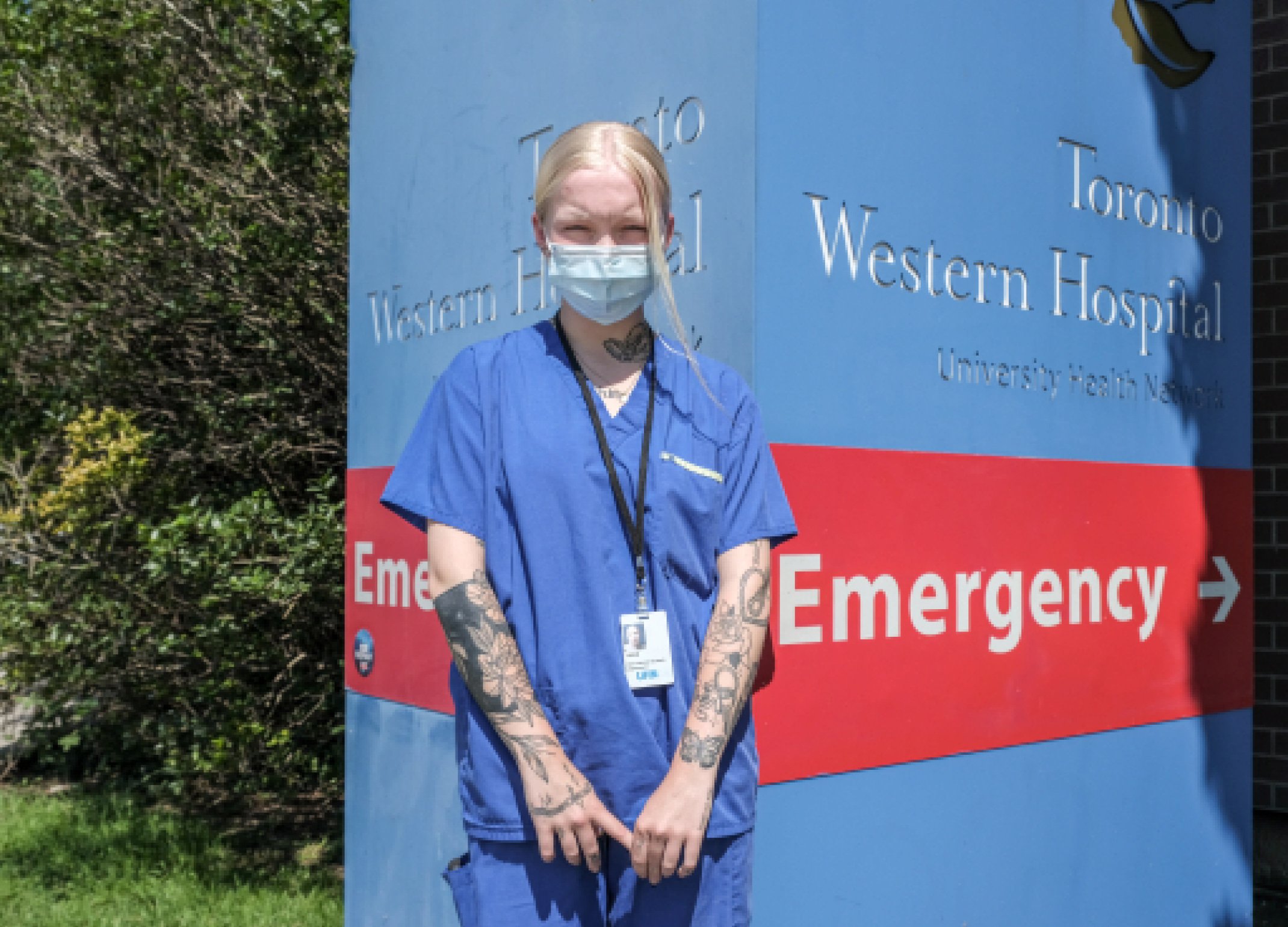
Street Survivors
Every step of the way
Jordan got his life back on track through Street Survivors
“I was in and out of shelters or living on the street since I was 16, and suffering from drug use. I felt hopeless because each time I’d try to change, I kept failing. Thankfully, I got connected with Street Survivors at The Neighbourhood Group.”
Street Survivors helps people who are homeless or marginally-housed by giving assistance with government and housing applications, referrals for physical and medical healthcare or legal services, offering transportation, and even providing simple things like a list of local food banks. The program is mobile, ensuring that participants have everything they need at the ready.
For Jordan, the journey from the street started in small increments, first by getting help with his medical appointments and prescriptions. By reaching that level of trust with staff, he was comfortable taking the next steps through harm reduction and relapse prevention programs.
“Staff helped me get through my difficulties, then got me a safe place to live. They followed up with visits to make sure I was ok and even gave me grocery gift cards.”
Today, Jordan has been clean for more than two years and works at the Alpha House recovery centre mentoring young people. His next goal? To build on his lived experience by getting a post-secondary degree and become a counsellor for people who use substances.
“It’s been a long journey but Street Survivors has been there every step of the way.”
3,000+ hours spent annually helping people remain in their own homes
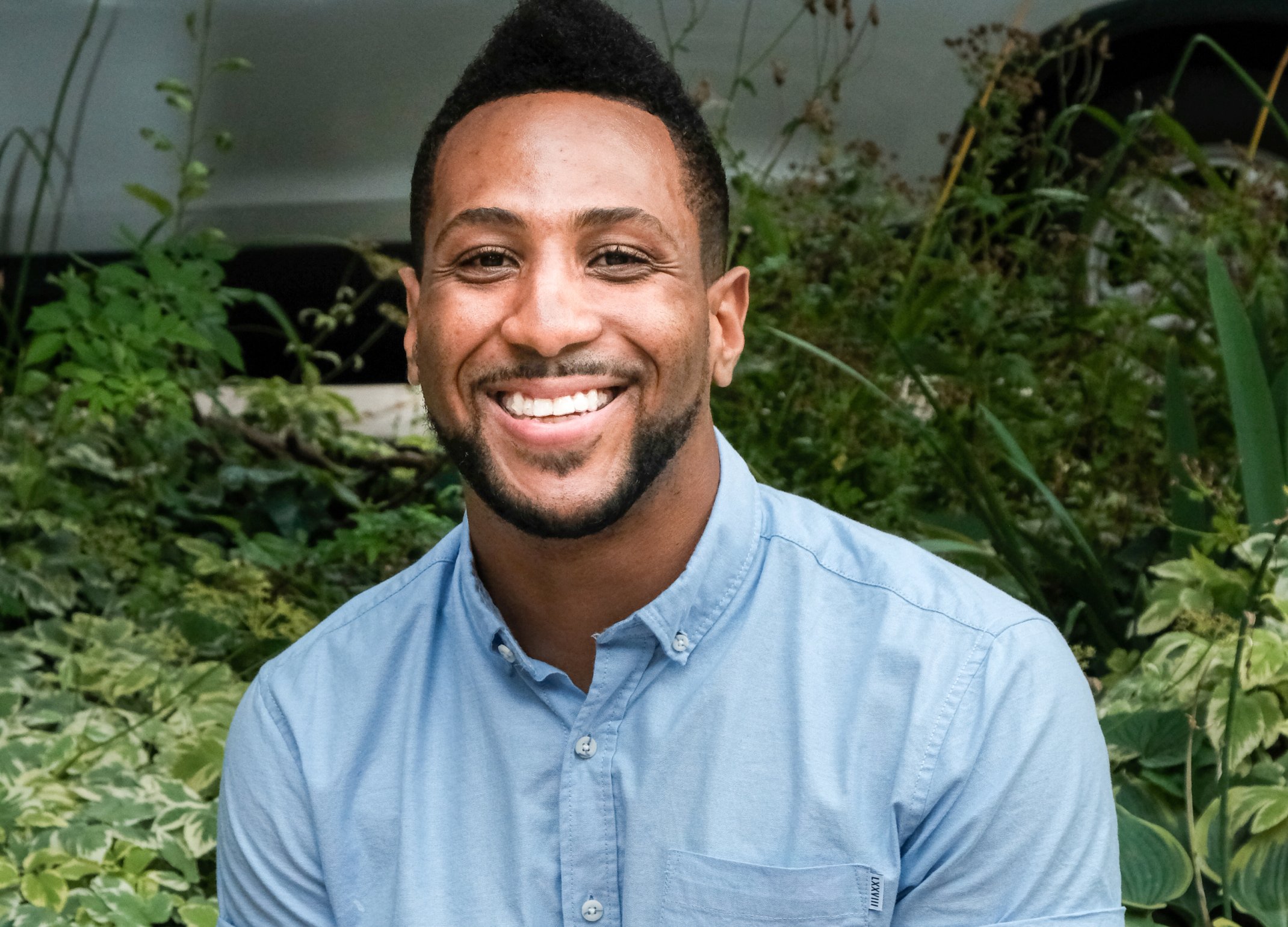
Voluntary Trustee Program
From money management to independence
Chantelle sees just how much the Voluntary Trustee program can help people find stability
Hunger. Unemployment. Housing insecurity. Substance use. These are just a few of the barriers faced by people on the street. Factor in the minimal benefits that people on social assistance receive and it’s almost impossible to break the cycle of poverty. That’s where Trustee Case Managers like Chantelle come in.
“It’s hard for people on government support to pay their bills or have enough for food. We help people navigate systems for things like securing safe housing or finding a doctor, all while working with them to budget for the essentials like rent, and in some cases, have a portion of their benefits automatically transferred to pay their bills. This stability allows people to focus on other things. You can see major life skills happening.
“One of my clients had depression and anxiety. He literally told me he never knew where his next meal was coming from. The first time I saw him in the Corner Drop-in, I could see the relief in his face. He just came for the immediate services, like meals, showers and laundry, but as he quickly became comfortable, he joined the Voluntary Trustee program. Because of his improved financial situation, he found a secure place to live, and felt confident enough to find work as a landscaper.
“Watching people go from the street to safe housing, having a job…even grocery shopping on their own…it’s amazing!”
98% of people in the Voluntary Trustee program are able to stay in their homes and maintain their independence
